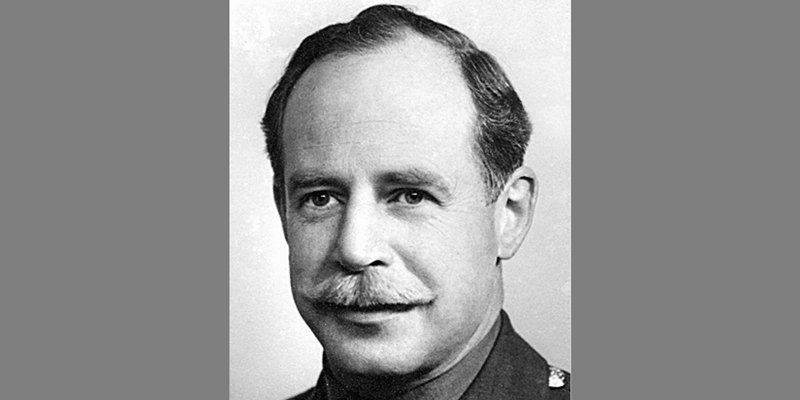Lieutenant Colonel David Rose, who commanded The Black Watch at the Battle of The Hook in the Korean War, has died at the age of 98.
The Black Watch family has been left to mourn the loss of an officer whose long and often flamboyant career was marked by heroism and inspiring leadership.
He won his first DSO in 1940 while serving as a captain with 2nd Battalion, The Black Watch (Royal Highland Regiment), in British Somaliland, which was then defended by a small British force.
Forced to withdraw by five Italian brigades and short of ammunition, the Scots were at severe risk of being cut off. But Captain Rose, commanding the forward company, led his troops in a bayonet charge towards the attacking forces. Despite being wounded in the shoulder, he continued to lead the attack, stuffing his injured arm into his belt.
The Italian forces broke and fled and were so harried by the soldiers of The Black Watch that there was no further interference to the battalion’s withdrawal.
Born in 1912, Col Rose was the third of four sons born to Brigadier John Rose CIE (Highland Light Infantry and 1st King George’s Own Gurkha Rifles) and Constance, nee Campbell, of Dunstaffnage.
The brothers, known as the Wild Roses, were brought up at Taynuilt in Argyll and pursued distinguished military careers, serving with great gallantry and surviving the war.
Following an undistinguished education at Glenalmond, Col Rose passed into Sandhurst in 1930 and became a junior under officer before being commissioned into The Black Watch. Early army duties included a period spent on the Royal Guard at Balmoral.
His active service started in 1938 when the battalion was deployed to Palestine, before he came to prominence in Somaliland. Col Rose then attended Staff College in Haifa, where he often avoided his studies, preferring unauthorised military expeditions instead.
According to his family he was never caught but had two near escapes the first when he became marooned at sea on a cruiser and was caught up in an enemy air attack, and the second when he accepted the surrender of the Lebanese city of Sidon when he was supposed to have been studying miles away.
Soon after he took up his first staff appointment in Cairo, news came that 2nd Battalion Black Watch had suffered significant casualties during the siege of Tobruk in Libya. Reinforcements were urgently required, so he returned to the battalion as adjutant and was later posted to Burma to command one of the two Black Watch columns in the second Chindit campaign.
He was wounded again in the (other) shoulder but continued in command behind Japanese lines for weeks before blood poisoning forced his evacuation.
After the war, he married Lady Jean Ramsay, the younger daughter of the Earl of Dalhousie, and their postings together with a young family included time in Cairo and in Tripoli before he was recalled from command of the Regimental Depot in Perth to take command of the 1st Battalion before its departure for Korea in 1952.
The battalion was ordered to take over The Hook, a prominent position on the front line, from the 6th Battalion, US Marine Corps.
With Royal Engineer assistance, deep tunnels were excavated in each company position, giving protection from enemy bombardments and allowing the soldiers to take cover if overrun. With his men safe in their tunnels, Col Rose could call for artillery to be brought down on his own positions to break up the enemy.
Using these and other unconventional tactics, The Black Watch managed to hold The Hook when major Chinese offensives came.
In recognition of his leadership, Col Rose was awarded a Bar to his DSO.
The Black Watch was then ordered to sail to Kenya to assist in suppressing the Mau Mau uprising. On return from Kenya he was posted as chief instructor to the Small Arms School at Hythe before retiring to Scotland.
As an honorary member of the British Limbless Ex-Servicemen’s Association, he spent his last years in the BLESMA Home in Crieff.
His wife predeceased him and he is survived by a son and daughter and five grandchildren.
